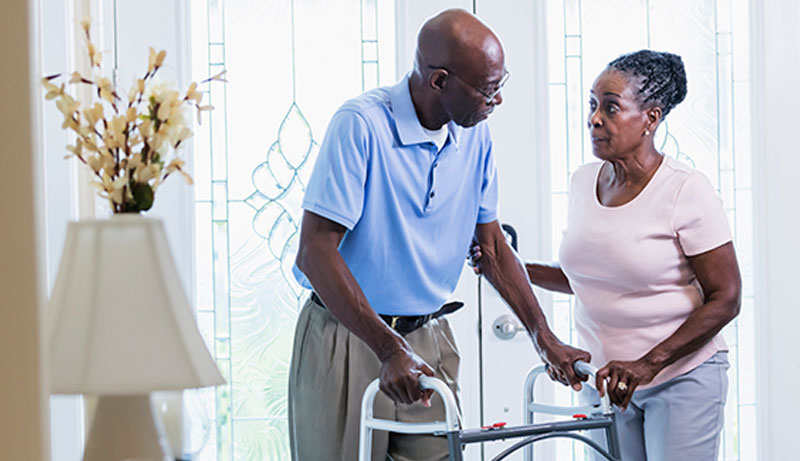
What are the new hurdles when caring for Parkinson’s in the late stages?
A Parkinson’s disease diagnosis affects members of the family as well as the person afflicted. Learning about what to expect as the condition advances is paramount to being prepared for all the changes in the future and to making life the best it can be each day, and to help caregivers in caring for Parkinson’s in someone they love.
Over the last couple of months, we’ve shared blog posts explaining what to expect in the early and middle stages of Parkinson’s disease. Information has included what family caregivers can do to best help a senior loved one with Parkinson’s, and how Hearts at Home In-Home Care can help. In this concluding segment in the series, we provide information about caring for Parkinson’s in the late stages of the disease. Contact us online or call us at 913-440-4209 to learn more about how we can help with in-home Parkinson’s care.
Later Stage Parkinson’s
In the late stages of Parkinson’s disease, a significant amount of assistance is needed with activities of day to day living. By definition, the last stages of Parkinson’s are noted by the person’s inability to live independently. Initially, standing and walking may still be possible, but with pronounced difficulty, and as the condition continues to progress, the person will not be able to get out of bed or a chair without assistance.
In combination with a heightened risk for falls, hallucinations and delusions can also be common. As a result, full-time, day-and-night care is essential to ensure safety and well-being.
The Impact of Late Stage Parkinson’s on Family Caregivers
At this stage, the worries and day-to-day requirements of caregiving usually take a toll on a caregiver’s own health. It is very important for family caregivers to reach out and accept help, to remain socially connected, and to make respite care a high priority. It is just not practical for one individual on their own to manage the around-the-clock care necessary for someone in late stage Parkinson’s.
How Care Providers Can Help with Late Stage Parkinson’s Care
With additional hands-on care necessary, it’s important for caregivers to understand how to safely and efficiently provide this support in order to reduce the possibility of harming either themselves or the person being cared for.
If the older adult is not currently receiving physical therapy services, talk with the doctor for a referral. The physical therapist, while helping optimize the person’s ability level, may also advise family caregivers on the best techniques for hands-on assistance.
One new symptom that frequently appears in the later phases of Parkinson’s is freezing, when the person is suddenly (but temporarily) not able to move. Ways to help break a freezing episode include:
- Using a laser pointer and asking the individual to step on the light
- Using a rhythmic noise, such as clapping, and encouraging the individual to take a step with each clap
- Playing music and prompting the individual to walk to the beat
As always, stay close at hand when the individual is mobile to avoid a fall.
Make sure to provide an abundance of additional time for daily activities such as getting dressed and eating, which are likely to take more time now. This is important in protecting the person’s self-sufficiency. Even if it requires longer to finish a task, it is always better to foster as much self-reliance as you can.
Emotional and mental health concerns also may develop now, including anxiety, depression, memory problems, and dementia. These health conditions can be hugely challenging for a family care provider to manage and should be brought to the attention of the senior’s physician.
Hearts at Home In-Home Care’s exceptional senior care team is here to help you and the older adult you love through each stage of Parkinson’s. Especially in these final stages of the disease, having a care partner you can trust and rely on is a must.
Call us at 913-440-4209 for a no-cost in-home consultation to learn more about our home care assistance in Overland Park, KS and the surrounding areas. Find out how we can ease the transitions through Parkinson’s for both you and the seniors you love.
